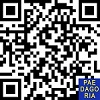DEVELOPMENT OF OUTDOOR LEARNING TO IMPROVING LEARNING OUTCOMES REVIEWED FROM ABSTRACT THINKING ABILITY, RESPONSE TO GUIDELINES AND SCIENCE PROCESS SKILLS FOR STUDENT OF VOCATIONAL HIGH SCHOOLS
Abstract
Abstract: This study aims to (1) describe the feasibility of outdoor learning models, (2) describe the developed outdoor learning models that can improve student learning outcomes, (3) describe whether abstract thinking abilities, responses to guidance and science process skills can contribute to understanding resistivity topic in vocational schools.This research was conducted using the Research and Development method with 4D, namely define, design, develop, and disseminate. The subjects of this study were of 49 students of class X TKPI. The research sample consisted of one experimental class and one control class. Learning outcomes data obtained from the posttest, abstract thinking ability data obtained from abstract thinking test questions, science process skills data obtained from science process skills test questions, response data to learning were collected by questionnaire—data analysis using ANCOVA analysis. The results showed that (1) the development of learning devices with the topic of types of obstacles meet the feasible criteria, (2) there is a positive influence of outdoor learning in improving student learning outcomes indicated by the value of Fcount = 32.41 while Ftable 5% = 2.81. The difference in learning outcomes shown by the gain index of the experimental class 0.78 and the control class 0.67, (3) there is a relationship between the ability to think abstractly, responses to learning and science process skills with student learning outcomes in the topic of resistivity that can be seen from the regression coefficient R = 0.8268 and the coefficient of determination R2 = 0.6836. So that it can be interpreted that the three covariates are good predictors of learning outcomes, (4) the effective contribution of abstract thinking ability 1.908%, (5) the relative effective contribution of science process skills 51.269%, (6) effective contribution of responses to effective learning 1,076%.
Abstrak: Penelitian ini bertujuan untuk (1) mendeskripsikan kelayakan model pembelajaran outdoor learning, (2) mendeskripsikan model pembelajaran outdoor learning yang dikembangkan dapat meningkatkan hasil belajar siswa, (3) mendeskripsikan apakah kemampuan berfikir abstrak, tanggapan terhadap bimbingan dan keterampilan proses sains dapat memberikan kontribusi terhadap pemahaman hambatan jenis di tingkat SMK. Penelitian ini dilakukan dengan metode Reseacrh and Development dengan 4D yaitu define, design, develop dan disseminate. Subjek penelitian ini adalah 49 siswa kelas X TKPI SMK. Sampel penelitian terdiri dari satu kelas eksperimen dan satu kelas kontrol. Data hasil belajar diperoleh dari posttest, data kemampuan berfikir abstrak didapatkan dari soal test berfikir abstrak, data keterampilan proses sains didapatkan dari soal test keterampilan proses sains, data tanggapan terhadap pembelajaran dikumpulkan dengan angket. Analisis data menggunakan analisis anakova. Hasil penelitian menunjukkan bahwa (1) pengembangan perangkat pembelajaran dengan topik hambatan jenis memenuhi kriteria layak, (2) terdapat pengaruh positif pembelajaran outdoor learning dalam meningkatkan hasil belajar siswa ditunjukkan oleh nilai Fhitung = 32,41 sedangkan Ftabel 5% = 2,81. Perbedaan hasil belajar ditunjukkan oleh indeks gain kelas eksperimen 0,78 dan kelas kontrol 0,67, (3) terdapat hubungan antara kemampuan berfikir abstrak, tanggapan terhadap pembelajaran dan keterampilan proses sains dengan hasil belajar siswa topik hambatan jenis yang dapat dilihat dari koefisien regresi R = 0,8268 dan koefisien determinasi R2 = 0,6836 sehingga dapat diartikan ketiga kovariat merupakan prediktor yang baik untuk hasil belajar, (4) sumbangan efektif kemampuan berfikir abstrak 1,908 %, (5) sumbangan efektif relatif keterampilan proses sains 51,269%, (6) sumbangan efektifn tanggapan terhadap pembelajaran efektifnya 1,076 %.
Keywords
Full Text:
Download [PDF]References
Amaluddin, L. O., Rahmat, Surdin, Ramadhan, M. I., Hidayat, D. N., Sejati, A. E., … Fayanto, S. (2019). The effectiveness of outdoor learning in improving spatial intelligence. Journal for the Education of Gifted Young Scientists, 7(3), 717–730. https://doi.org/10.17478/jegys.613987
Bott, R. (2014). Measurement and assessment in teaching. Igarss 2014, (1), 1–5. https://doi.org/10.1007/s13398-014-0173-7.2
Dewi, I. S., Sunariyati, S., & Neneng, L. (2016). Analisis kendala pelaksanaan praktikum biologi di SMA Negeri se-Kota Palangka Raya. Edu Sains: Jurnal Pendidikan Sains & Matematika, 2(1). https://doi.org/10.23971/EDS.V2I1.16
Djajadi, M. (2019). The Use of Outdoor Study Methods in Physics Kinematics Learning (A Classroom Action Research). Jurnal Pendidikan Fisika, 7(2), 151–172. https://doi.org/10.26618/jpf.v7i2.2070
Forsey, K. (2014). Taking the New Curriculum Outdoors. Primary Science, 9–11.
Hamidah, A., Novita Sari, E., & Budianingsih Program Studi Pendidikan Biologi Jurusan PMIPA, R. S. (2014). Persepsi Siswa Tentang Kegiatan Praktikum Biologi Di Laboratorium Sma Negeri Se-Kota Jambi. Jurnal Sainmatika Vol, 8(1), 49–59.
Harun, M. T., & Salamuddin, N. (2014). Promoting social skills through outdoor education and assessing its’ effects. Asian Social Science, 10(5), 71–78. https://doi.org/10.5539/ass.v10n5p71
Hasanah, A., & Utami, L. (2017). Pengaruh Penerapan Model Problem Based Learning Terhadap Keterampilan Proses Sains Siswa. Jurnal Pendidikan Sains (JPS), 5(2), 56–64.
Kawuri, M. Y. R. T., Ishafit, I., & Fayanto, S. (2019). Efforts To Improve The Learning Activity And Learning Outcomes Of Physics Students With Using A Problem-Based Learning Model. IJIS Edu : Indonesian Journal of Integrated Science Education, 1(2). https://doi.org/10.29300/ijisedu.v1i2.1957
Laelasari, N., & Sari, S. (2017). Penerapan Pendekatan Saintifik Untuk Mengembangkan Keterampilan Proses Sains Dan Sikap Ilmiah Siswa Pada Konsep Kelarutan Dan Hasil Kali Kelarutan. Jurnal Tadris Kimiya, 1(1), 20. https://doi.org/10.15575/jta.v1i1.1159
Lubis, M. A., & Azizan, N. (2018). Penerapan Model Pembelajaran Problem Based Learning Untuk Meningkatkan Hasil Belajar Matematika Di Smp Muhammadiyah 07 Medan Perjuangan Tahun Pelajaran 2018/2019. Logaritma: Jurnal Ilmu-Ilmu Pendidikan Dan Sains, 6(02), 150. https://doi.org/10.24952/logaritma.v6i02.1282
Malik, A., Setiawan, A., Suhandi, A., Permanasari, A., Samsudin, A., Safitri, D., … Hermita, N. (2018). Using hot lab to increase pre-service physics teacher’s critical thinking skills related to the topic of RLC circuit. Journal of Physics: Conference Series, 1013(1). https://doi.org/10.1088/1742-6596/1013/1/012023
Rubiah, M. (2016). Implementation of Problem Based Learning Model in Concept Learning Mushroom as a Result of Student Learning Improvement Efforts Guidelines for Teachers. Journal of Education and Practice, 7(22), 26–30.
Siswandi, G., & Sukoco, S. (2016). Pengembangan Model Teaching Factory di Bengkel Otomotif SMK Karsa Mulya Palangka Raya. Jurnal Pendidikan Teknologi Dan Kejuruan, 22(4), 467. https://doi.org/10.21831/jptk.v22i4.7844
Sukoco, G. S. (2015). Pengembangan Model Teaching Factory Di Bengkel. Jurnal Pendidikan Teknologi Dan Kejuruan, 22, 467–483.
Tauhidah, D., & Suciati, D. (2015). Perbandingan Peningkatan Keterampilan Proses Sains Dan Kemampuan Kognitif Siswa Pada Penerapan Model Guided Inquiry Laboratory. Prosiding Seminar Nasional Pendidikan Sains, (November), 2015–2509.
Ting, K. L., & Siew, N. M. (2014). Effects of Outdoor School Ground Lessons on Students’ Science Process Skills and Scientific Curiosity. Journal of Education and Learning, 3(4). https://doi.org/10.5539/jel.v3n4p96
DOI: https://doi.org/10.31764/paedagoria.v11i1.1891
Refbacks
- There are currently no refbacks.
Copyright (c) 2020 Universitas Muhammadiyah Mataram

This work is licensed under a Creative Commons Attribution-ShareAlike 4.0 International License.
Paedagoria : Jurnal Kajian, Penelitian dan Pengembangan Kependidikan
Fakultas Keguruan & Ilmu Pendidikan | Universitas Muhammadiyah Mataram.
_______________________________________________
 | Paedagoria : Jurnal Kajian, Penelitian dan Pengembangan Kependidikan |
______________________________________________
CURRENT INDEXING:
EDITORIAL OFFICE:


















